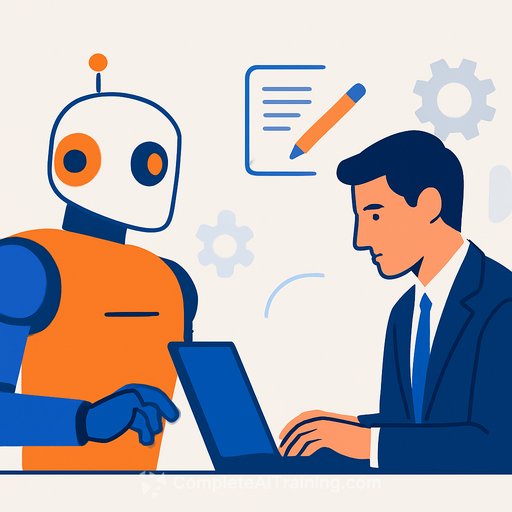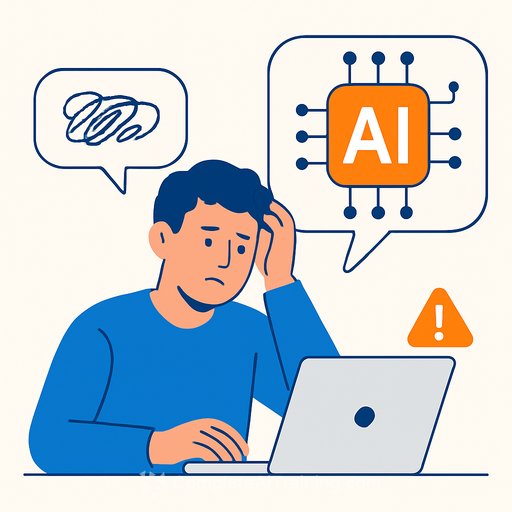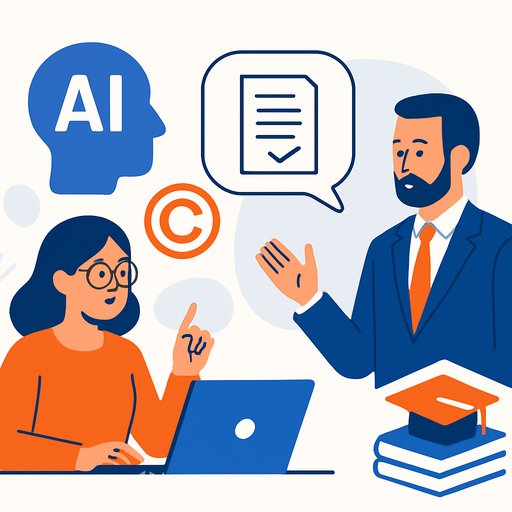AI Can't Write Jokes: What Humor Writers Can Learn from The Onion's CEO
At the Online News Association conference in New Orleans, The Onion's CEO Ben Collins put it bluntly: AI is "the least funny technology that exists." His point landed because it's simple. AI averages what already exists. Jokes don't live in the average - they live at the edges.
"AI is the synthesis of all known stuff on the internet. It picks the middle of it. And jokes are never the middle of anything," he said. At best, a prompt gets you an eye-roll. That's not comedy - that's filler.
Why this matters for writers
Humor is judgment, timing, and taste - the exact things large models can't replicate. If your work depends on point of view, risk, or surprise, your edge is intact. The signal is clear: lean harder into craft, voice, and specificity.
The Onion's stance: human-made, full stop
Collins didn't hedge: "We're just fervently and hardcore against AI in every way." The Onion's words and images remain human-crafted. That commitment is a strategic moat, not just an ethos.
Business moves that back the bet
The Onion stripped out "entirely programmatic ad slop" and relaunched a print edition with nearly 56,000 paying subscribers. As Collins joked, "We are the 13th largest newspaper in the United States," calling it both absurd and an indictment of the industry. Print isn't nostalgia - it's a brand asset people pay for.
Satire, speech, and pressure
The conversation turned serious as Collins warned of a coming crackdown on dissent in response to politicized narratives about violence. His stance: satire won't stop. "We have jester's privilege. And we use it."
The Infowars saga: turning a platform into a parody
The Onion is still working to complete the court-governed purchase of Infowars, the conspiracy-theory site run by Alex Jones, tied to the effort to pay the more than $1 billion awarded to Sandy Hook families for his lies. For context on those cases, see Associated Press coverage. The plan, if the deal closes: use the site to lampoon its advertisers and the "supplement-selling, beef-tallow business." As Collins put it: "It's a gigantic pain in the ass. I don't recommend trying to buy a psychopath's website."
Practical takeaways for writers
- Keep the edge. Comedy, commentary, and cultural writing win through taste, timing, and risk - not averages. Commit to a clear point of view.
- Ship artifacts people can own. Print, zines, premium newsletters, and limited drops create tangible value and loyalty.
- Reduce ad dependence. Replace low-value programmatic ads with paid subscriptions, memberships, and direct sponsorships aligned with your audience.
- Make your process antifragile. Short editorial cycles, small teams, fast experiments. Publish, get feedback, iterate.
- Use AI as a tool, not a ghostwriter. Narrow tasks only: outlines, summaries, idea sorting, proofreading. Never outsource your punchlines or thesis.
- Own your distribution. Email list first. Social second. Platforms are unstable; your list is an asset.
Where AI fits (and where it doesn't)
- Good fits: research summaries, extracting quotes, transcription, formatting, quick A/B headline tests.
- Bad fits: humor, satire, essays with teeth, narrative arcs that require judgment and lived context.
If you want structured tools for the "good fits," explore these resources: AI tools for copywriting and courses by job.
If generous AI money knocks…
Collins, half-joking about the money flooding into AI, offered this: "Take the fucking money. It's all good. And brag about it afterwards." Translation for writers: keep your integrity in the work - and don't be naive about capital. If you take it, make it serve the craft and your audience.
Bottom line: AI won't beat writers at being human. Double down on taste, specificity, and a direct relationship with readers. That's the moat.
Your membership also unlocks:






